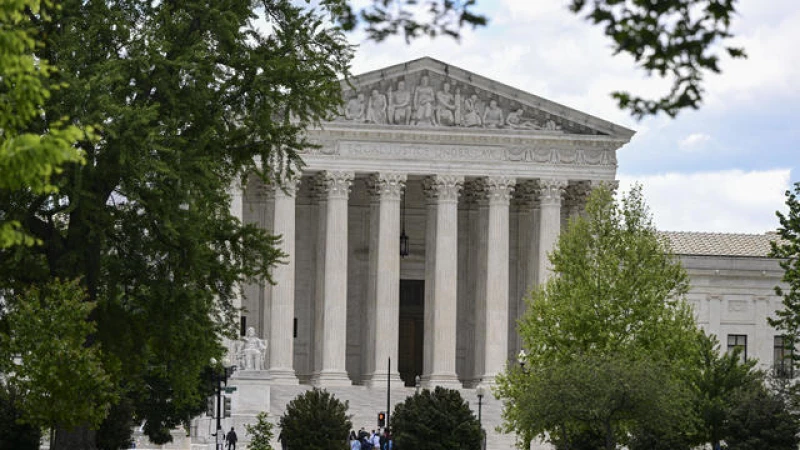Supreme Court Takes Up Challenge to Fee Requirement
Washington — The Supreme Court on Wednesday is taking up challenges by commercial fishermen to a fee requirement that could achieve a long-sought goal of business and conservative interests: limiting a wide swath of government regulations.
Billions of dollars are potentially at stake in front of a court that, like the rest of the federal judiciary, was remade during Donald Trump's presidency by conservative interests that were motivated as much by weakening the regulatory state as social issues including abortion.
Lawyers for the fishermen are asking the justices to overturn a 40-year-old decision that is among the most frequently cited high court cases in support of regulatory power, including on the environment, public health, workplace safety and consumer protections.
Lower courts used the decision, known colloquially as Chevron, to uphold a 2020 National Marine Fisheries Service rule that herring fishermen pay for government-mandated observers who track their fish intake.
In 1984, the Supreme Court made a decision stating that federal agencies should be allowed to fill in the details of laws when they are not clear, as long as they come up with a reasonable interpretation. Justice John Paul Stevens wrote for the court, explaining that judges are not experts in the field and should play a limited role in such matters. The court ruled 6-0, with three justices recused.
However, the current Supreme Court, which has a conservative majority of 6-3 including three Trump appointees, has been increasingly skeptical of the powers of federal agencies. Justices Clarence Thomas, Samuel Alito, Neil Gorsuch, and Brett Kavanaugh have all questioned the Chevron decision.
The arguments from the two sides
Opponents of the Chevron doctrine argue that judges apply it too often to rubber-stamp decisions made by government bureaucrats. The lawyers for the company that owns the Rhode Island-based Relentless and Persistence fishing boats told the court that judges must exercise their own authority and judgment to interpret the law. They also argue that agencies effectively act as judges in their own cases, which they believe is unfair.
On the other hand, the Biden administration defends the rulings that upheld the fees and argues that overturning the Chevron decision would have a detrimental impact on the legal system, causing a "convulsive shock."
Court Considers Chevron Decision in Environmental Case
The Supreme Court is currently considering whether to uphold the Chevron decision in an environmental case involving fishermen. The Chevron decision, which gives deference to federal agencies in interpreting federal statutes, is being challenged by the fishermen who argue that it allows agencies to overreach their authority.
Taking Sides
Various groups have taken sides in the case. Environmental, health advocacy groups, civil rights organizations, organized labor, and Democrats are urging the court to leave the Chevron decision intact. On the other hand, business groups such as gun, e-cigarette, farm, timber, and home-building groups are supporting the fishermen. Conservative interests that have previously intervened in cases limiting regulation of air and water pollution are also backing the fishermen.
The Supreme Court is hearing two cases on the same issue, with Justice Ketanji Brown Jackson recused in one case due to her involvement at an earlier stage. The full court is participating in the case from Rhode Island.







